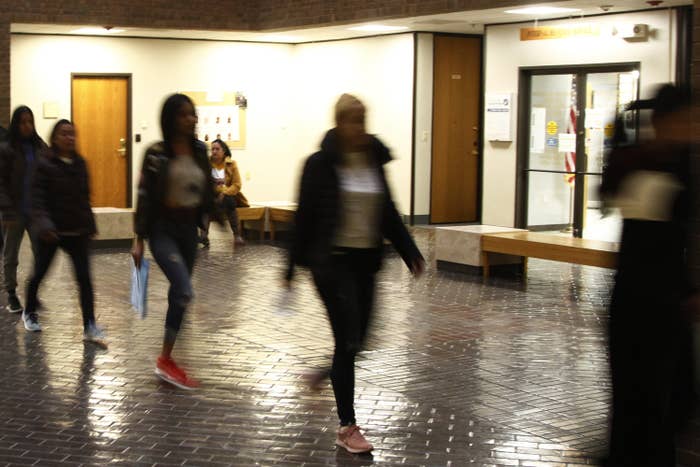
The Biden administration plans to put on hold the deportation cases of certain immigrants who may gain legal status outside of the immigration court system, according to a memo issued Tuesday and obtained by BuzzFeed News.
The memo, written by a chief immigration court official, Tracy Short, appears to be part of an effort to reduce the staggering backlog of more than 1 million deportation cases, which has resulted in some immigrants waiting years for a hearing. Reducing it has been a priority of the Biden administration. The issue is particularly urgent as the court system prepares for a potential flood of new cases when a pandemic-era border policy, Title 42, expires in late May and more immigrants are expected to enter the US.
It also falls in line with efforts at ICE to reshape the role of immigration enforcement in the US by focusing on what it considers more serious targets. Biden officials issued a memo to Immigration and Customs Enforcement prosecutors earlier this month authorizing them to consider dismissing certain cases involving immigrants who did not cross the border recently and are not public safety threats.
Short’s memo to immigration judges details how the Executive Office for Immigration Review (EOIR) — the US immigration court system — may put on hold certain deportation cases involving immigrants, including those who have applications pending with the US Citizenship and Immigration Services for benefits such as a green card through a family member.
“I have determined that certain cases should be taken off the court’s calendar,” Short wrote in the memo.
In other instances, individuals with an approved visa petition or eligibility for temporary protected status, which protects people from deportation for a certain period of time, also could have their cases removed from the court’s calendar. Children seeking asylum or pursuing a special immigrant juvenile classification, which is reserved for children who were abused or neglected by parents, will be eligible as well.
“EOIR is working diligently to address the pending caseload and moving cases that are ready for adjudication to a quicker resolution,” Lauren Alder Reid, a spokesperson for the court, told BuzzFeed News. “Along those lines, the Chief Immigration Judge’s email outlines priorities of cases ready for completion and allows cases that are not ripe for adjudication to be placed off the calendar until pending issues have been resolved.” Reid said the new effort will allow the court to schedule additional cases that are ready to be completed.
Immigrant advocates said the move was a welcome change.
“With 1.6 million cases in immigration court, it’s time to prioritize cases that are best heard in front of judges, not cases that can be resolved by USCIS. If someone is eligible for legal status with USCIS, why are we wasting time and resources to order them deported?” said Aaron Reichlin-Melnick, a policy analyst at the American Immigration Council. “For the immigrant, this takes away the threat of immediate deportation and allows them sufficient time for a benefit to become available.”
Either the Department of Homeland Security, which pursues deportations in immigration court, or the immigrant’s attorney can seek to keep the case on the calendar. If the court plans to remove a case from the calendar, both parties will have 60 days to request to keep the case moving forward in the system.
In certain situations, immigrants who have been waiting for a long period of time for their cases to be resolved may want the court date to remain standing.
Under Trump, officials executed a monumental overhaul of the way immigration judges worked by placing quotas on the number of cases they should complete every year, ending their ability to indefinitely suspend others, restricting when asylum can be granted, and pouring thousands of previously closed cases back onto court dockets. As a result, the case backlog increased and wait times continued to skyrocket.
Many judges, who oversee asylum claims and deportation cases, retired or resigned, citing Trump administration interference in how they were doing their jobs.
